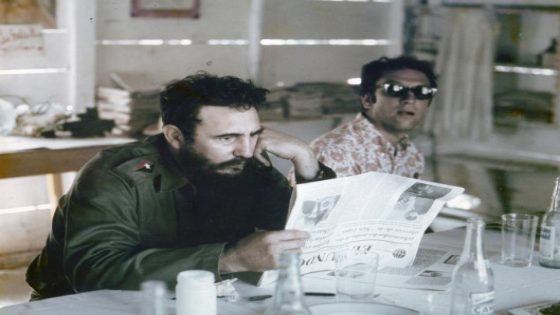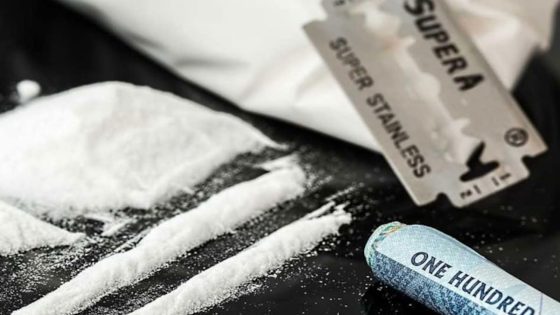Paramount+’s “Mafia Spies” unravels a hidden conspiracy between the CIA, the Chicago mob and Frank Sinatra’s Rat Pack to assassinate Cuba’s Communist leader Fidel Castro at a critical time in the Cold War. It’s a timely — and action packed — six-part docseries that examines what it means for geopolitics when high ranking American politicians are driven by personal demons.
The series is adapted from Thomas Maier’s “Mafia Spies: The Inside Story of the CIA, Gangsters, JFK and Castro” book, which drew upon material contained within declassified files about the 1963 assassination of President John F. Kennedy, released in batches by the National Archives in 2017-2018. Executive produced by Tom Donahue and Ilan Arboleda, “Mafia Spies” deals with politics, power, sex and violence. Castro managed to survive myriad assassination attempts that included two poison pills, which dissolved into the cold cream in which they were smuggled, an exploding cigar, a drug-soaked microphone, and bazookas.
The docseries relies heavily on the declassified National Archive documents as well as numerous expert talking heads and cinematic recreations to chart a Cold War game of cat and mouse from Vegas to Miami to Havana that pitted Washington figures against the 20th century’s most notorious gangsters.
For the stranger than fiction series, which debuted on Paramount+ July 16, Donahue interviewed historians and notable journalists, including Maier (who previously authored “Masters of Sex,” adapted into a Showtime series starring Lizzy Caplan), Gerald Posner, Tim Weiner, Geoff Schumacher, Stephen Kinzer, Peter Kornbluh, J. Michael Niotta, as well as professor Boris Nerey Obregon. The series also features mobster Sam Giancana‘s daughter Antoinette, entertainer Betsy Duncan and actor Robert Davi.
Variety spoke with “Mafia Spies” showrunners Donahue and Arboleda.
Tom, you said that the series was made to “inspire viewers to reflect on the importance of protecting our democracy and holding those in power accountable.” Can you elaborate?
Donahue: If you go back to World War II, we never had an intelligence agency because the government didn’t believe that in a democracy there should be a secret intelligence organization because it was anti-democratic. Then there was one during World War II. Then it got dismantled. Then the CIA started because the Soviet Union was such a huge threat that we felt we had no choice but to create an intelligence organization similar to what England had done so successfully under the crown. President Truman was initially against it. But President Eisenhower was against any more D-Day-like bloodbaths, so he believed in covert operations. So, now you have an organization that gathers intelligence, but also takes action on that intelligence. So then there was no check and balance within the CIA — they get the intelligence and they decide what to do without asking permission.
Arboleda: One of the most important takeaways of the series is that the government at the time decided that they knew what was best for everybody, not just America but the world. And then they proceeded to cover it all up. The idea of this (Castro attempted assasination) getting out would be the worst thing imaginable. There are actual conspiratorial elements that they themselves put together and by creating a situation where there’s no transparency, then you have a situation of no accountability. When there’s no accountability, there are no lessons learned. Part of having democracy is that the vote holds your elected officials to accountability, so if you obfuscate that, you threaten democracy.
In the series, it is revealed that in 1960 President Eisenhower wanted Castro “sawed off.” CIA director Allen Dulles, former FBI agent-turned-Howard Hughes associate Robert Mayhew, Cuban exile Frank Sturgis and Chicago Outfit gangsters Sam Giancana and Johnny Roselli are among the powerful men who were all trying to assassinate Castro. Why weren’t they able to pull it off?
Donahue: One reason is that Castro was really good at penetrating the intelligence agency in the United States at the highest levels with double agents. Nobody knew who actually was working for Castro. Whenever there was an assassination attempt, Castro seemed to know about it. That had a lot to do with his training by the Soviet Union.
Arboleda: Another reason also is that the CIA was making it up as they went along. They had no understanding of what they were doing. They just thought they knew the answers to the world. In the series we show how Jacqueline Kennedy gave Allen Dulles a copy of “From Russia, With Love” and said, “You should do some of the things from this book.”
Was America in the 1960s so afraid of Castro because of the threat of communism, or did Castro pose a threat to the manhood of America at the time?
Donahue: Yes. That’s exactly right. It’s about the other being 90 miles away and the other taking power in a very, very important commercial trade route for the United States. These white bread Georgetown guys at the CIA at the time could not allow that to happen. There’s a lot of racism involved as well.
Arboleda: Both Stephen Kinzer and Tim Weiner opine in their books that it’s actually the U.S. projecting the sphere of the Soviet Union that almost drives these countries, whether it’s Guatemala, the Congo, the Philippines, or Vietnam towards the Soviet Union because there was no other place for them to go. Once the U.S. decides that they are evil because they are taking U.S. corporate interests, these countries have to go to the other big guy. That projection of that fear of communism actually drives countries in that direction, which I think was very true for Castro.
Much has been made about Frank Sinantra’s involvement with the mafia, but do you think viewers will be at all surprised about just how enmeshed he was with American gangsters?
Arboleda: Frank wanted to be a mobster without actually being one. He loved hanging around them. He loved their lifestyle. There was something about that tough guy image that he loved to be able to portray. But as a result, he was at the fulcrum point of all these forces — Hollywood, CIA, the honeypots, and President John F. Kennedy. It’s unbelievable what he was in the middle of and responsible for. I mean, the fact that the president of the United States (JFK) and the head of the Chicago mob were sleeping with the same woman is because of Frank Sinatra.
In the first episode of the series it is revealed that JFK had a threesome with two Cuban prostitutes while he was in Havana. Was that information that was revealed by the National Archives?
Donahue: Yes.
Wow. Sometimes I feel like all these affairs people claimed JFK had were blown up out of proportion to create salacious headlines.
Donahue: I think we also have to take a more macro view of his generation coming out of World War II. They all had post-traumatic stress. They all drank and they were probably all sex addicts as a way to self-medicate.
You interviewed many celebrated experts for this series. Did it take any convincing?
Donahue: The first line in the series is Thomas Maier saying, “How do you tell a story where everybody lies?” There are so many conspiracy theories around various aspects of these stories that we knew it was a bit of a minefield. So, for us to get a Pulitzer Prize winner like Tim Weiner we could not put a conspiracy theorist on camera. We needed to be legitimate always or those guys would not have been a part of this. So, that’s how difficult it was to get them on camera. They needed to know that we were coming from a place of as much of an objective truth as is possible in a story where everybody lies.
I read a review that states that “Mafia Spies” is a spy exposé, murder mystery, and shocking true story that recounts America’s first foray into the assassination business, a tale with profound impact for today’s Trump era. Would you agree?
Arboleda: One hundred percent. I mean, certainly it’s become much more self-evident over the last few days.
Donahue: Not just the Trump era. I think you can go to George W. Bush and the CIA and WMDs and the fact that political leaders are driven by their personal demons, as we say at the end of Episode 6. So many of these personal demons are what drive our foreign policy and since we’re the quote unquote leader of the free world, it has a major geopolitical effect.
“Mafia Spies,” produced by CreativeChaos in association with Danny Strong Prods. and See It Now Studios, debuted on Paramount+ on July 16 in the U.S. and Canada and on July 17 in the U.K., Australia, Latin America, Brazil, France, Italy, Germany, Switzerland and Austria.
Source Agencies


